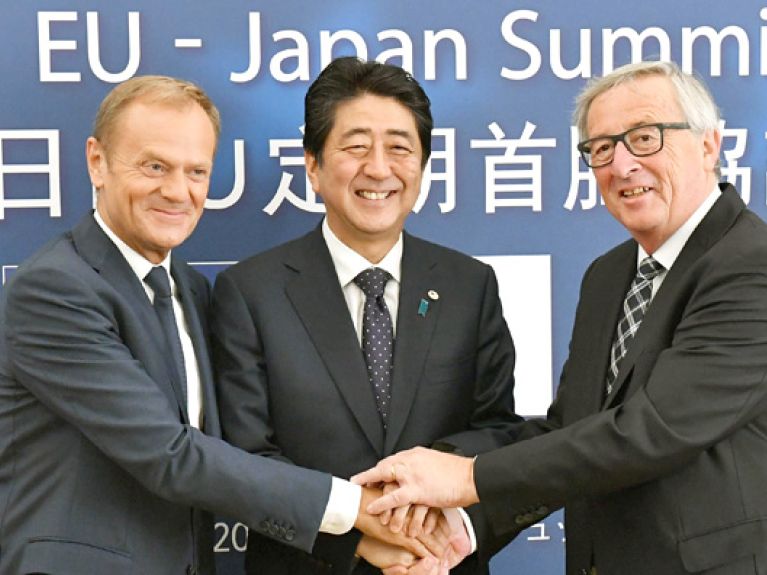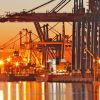Breakthrough on free trade
At a joint summit, the EU and Japan champion free trade and a strategic partnership.

Since 2013, the EU and Japan have been negotiating a free trade agreement. Now talks have progressed so far that at the Brussels EU-Japan summit on Thursday, 6 July 2017, agreement has been reached on a free-trade and strategic partnership agreement. European Council President Donald Tusk, Japanese Prime Minister Shinzo Abe and European Commission President Jean-Claude Junker called it „a sign” of their efforts to promote an open economy.
EU Commissioner for Trade Cecilia Malmström and EU Commissioner for Agriculture Phil Hogan travelled last weekend to Japan to iron out differences on agricultural produce and in the automobile sector. Malmström said at the concluding press conference: “We’re almost at our goal. There’s sufficient overlap now that our civil servants can in the next few days clarify the remaining details. I am therefore very confident that our heads of governments will agree a package at the summit and give it their blessing when they meet on 6 July. Then we will have a political accord on our trade agreement.” The summit agenda also includes closer cooperation on security issues, the joint battle against terrorism and stabilizing third-party countries, and on data protection.
The first free-trade agreement the EU concluded with an Asian partner country was with South Korea. It came into force in 2011 and has definitely generated positive results. After five years, EU exports to South Korea have risen by 55 percent. At the same time, European companies have, thanks to the abolition or reduction of customs duties, booked savings of 2.8 billion Euro. The agreement has not only boosted the traditionally strong exports of cars, machinery, and chemical products. Many small European companies in sectors as different as food and beverages, ceramics, packaging, sports equipment, and book-binding technology have benefited from it, too. The EU’s former trade deficit with South Korea has turned around and is now a trade surplus.

